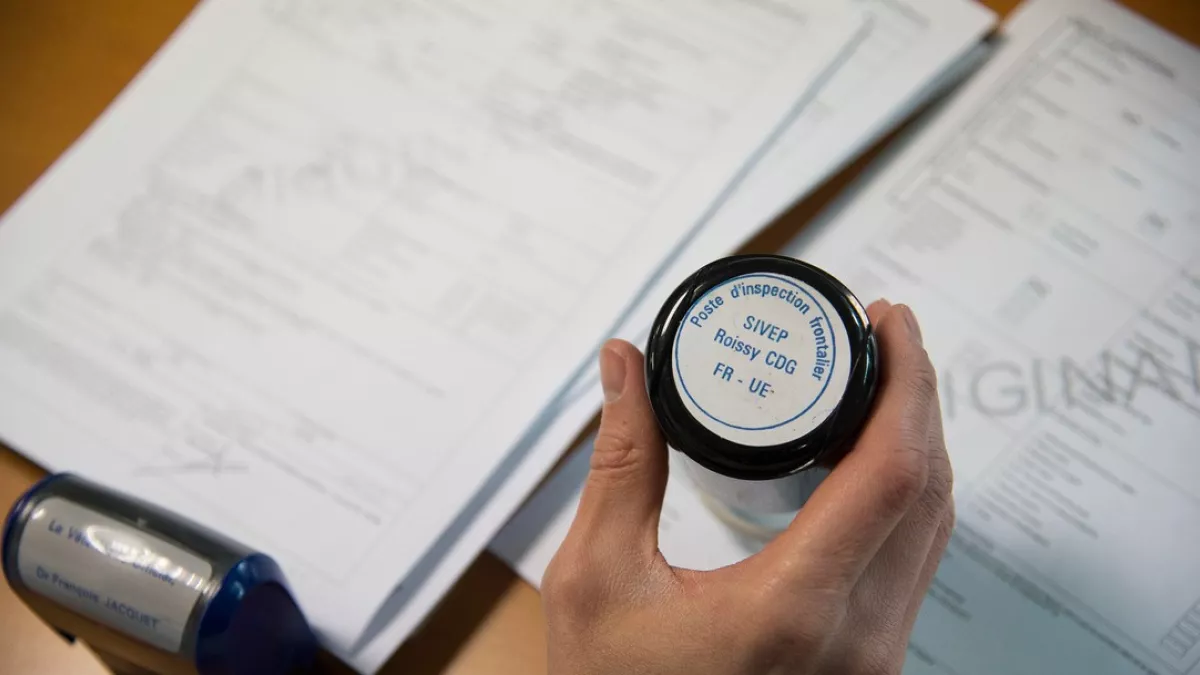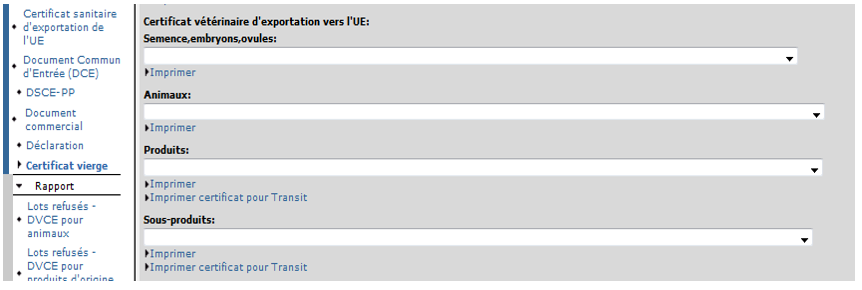
The SPS inspection procedures that apply to you
Partager la page
Stage 1: Certification:
- ! Prior to departure of the goods !
- !! To be done by the competent authority located in the Third Country!!
The TRACES and TRACES-NT systems allow third countries to edit (phyto)sanitary certificates compliant with EU regulations.
Where can I find the models for veterinary health certificates in TRACES?
By clicking on the tab “blank certificate” and then on one of the tabs of the item "Veterinary certificate for exports TO the EU”, you will find a list of models of the certificates to be used for importing products and animals into the EU.

Important note: For animal feedstuffs of non-animal origin, an accompanying document may be required, depending on the regulations in force specific to each type of product.
Where can I find the models for phytosanitary certificates in TRACES-NT?

Examples of certificates
Please note: It is recommended that security seals be affixed to the doors of the means of transport after loading, entering the seal reference number on the (phyto)sanitary certificate. This will have the effect of simplifying the border post inspection process and may potentially avoid the need to unload the goods.
- It is recommended that the certificate be scanned in order to attach it to the pre-notification in TRACES (this should be done by the importer or the importer’s representative)
- The original certificate must physically accompany the goods
Stage 2: Pre-notification in TRACES, implementation of page 1 of the CHED
The CHED is in two parts, and the task at this point is to complete Part I:
- Part I should be completed by the importer in order to pre-notify importation or transit in the EU of live animals or products prior to their arrival.
This “pre-notification” is necessary in all cases, and is recorded in TRACES by the importer’s representative – in CHED Part 1 – ahead of the introduction of the consignment into EU territory; it summarises the information needed for consignment traceability.
NB: Alongside this, do not forget to initiate the customs procedures
How the CHED should be completed for live animals and animal products:
How to create a CHED-PP document in Traces-NT for plants:
Examples of CHED documentation
Stage 3: The inspection
Part Two of the CHED is completed by the competent authority at the border post. The results of the checks performed at Border Control Posts are summarised in this second part of the CHED.
The outcome is entered in the TRACES system after completion of the checks.
A CHED with “original document” status means that the sanitary or phytosanitary checks indicate compliance and customs procedures can be undertaken.
Voir aussi
How should you carry out your SPS border control procedures (information systems) ?
14 octobre 2019sécurité sanitaire des aliments
Do SPS border control apply to me?
14 octobre 2019sécurité sanitaire des aliments

Where are SPS border controls carried out?
14 octobre 2019sécurité sanitaire des aliments
